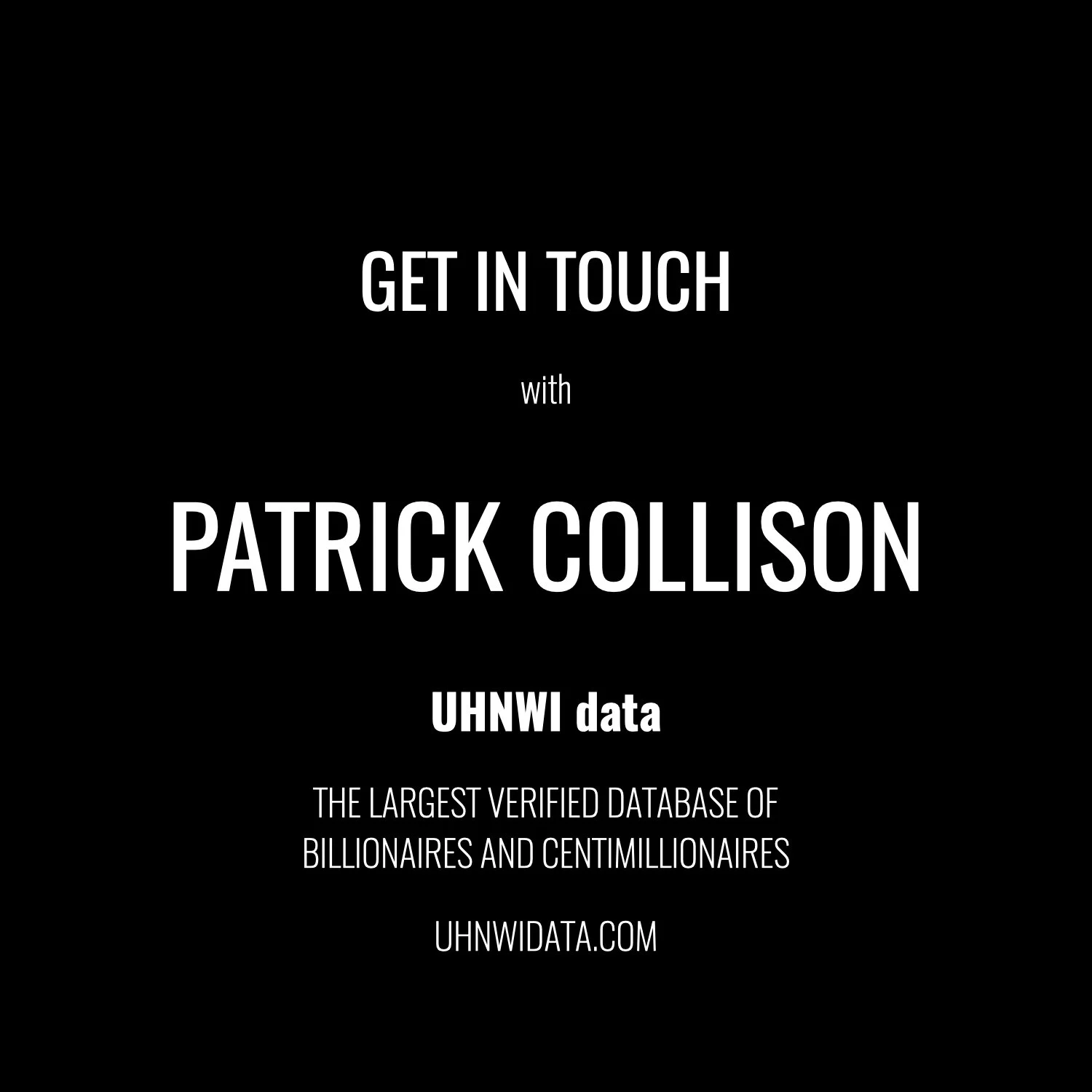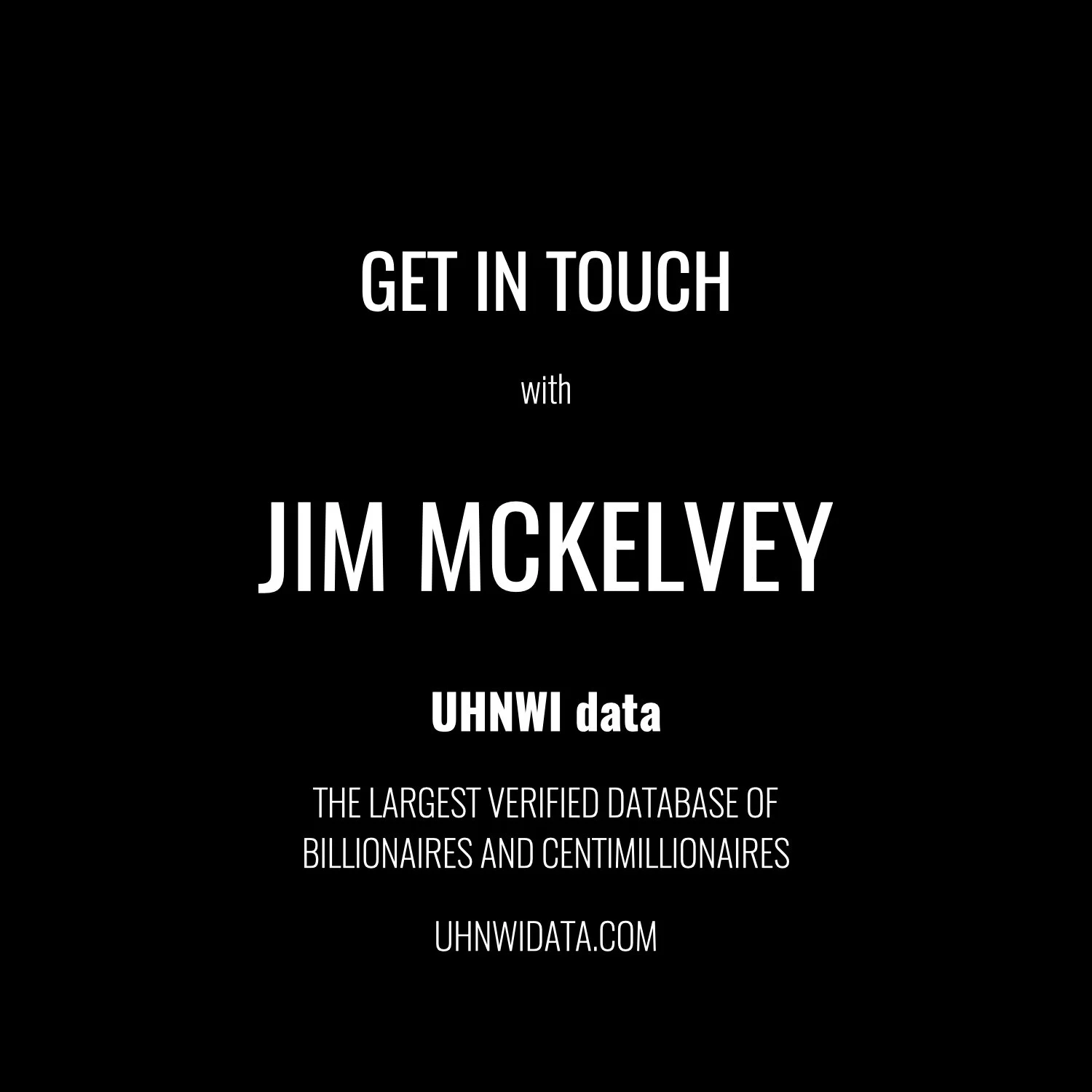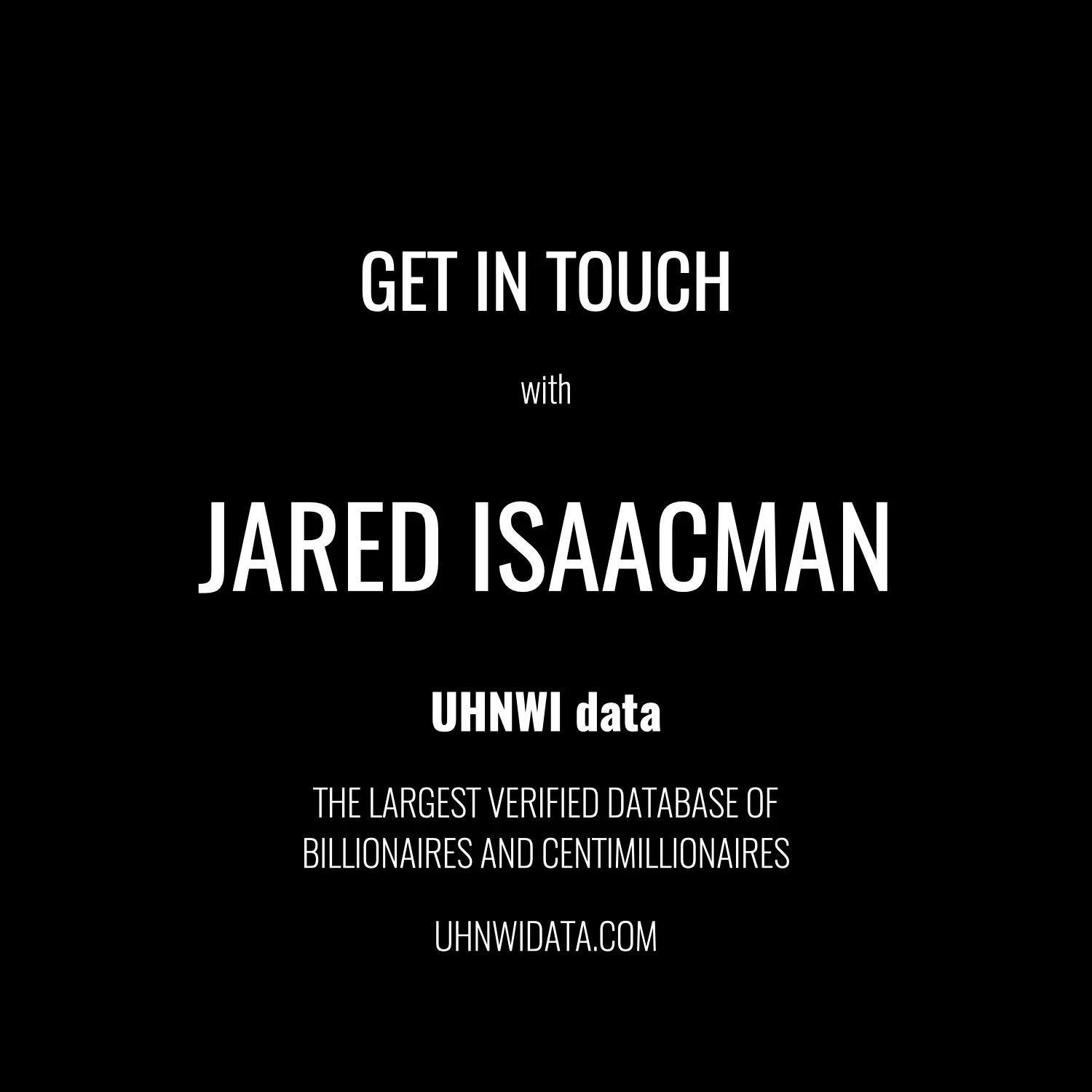James McKelvey Jr. is an American entrepreneur, glassblower, and philanthropist renowned for co-founding Square, Inc. (now Block, Inc.) in 2009 alongside Jack Dorsey, which introduced the first widely accessible mobile credit card reader to simplify payments for small businesses and individuals.[1][2]
Prior to Square, McKelvey operated a glassblowing studio in St. Louis, where difficulties accepting credit card payments for a $2,000 art piece prompted the innovation that addressed barriers in mobile transactions, leading to Square's card reader—a device inducted into the Museum of Modern Art—and enabling millions to process payments via smartphones.[1][3]
McKelvey has since founded Invisibly, a platform aimed at reforming digital content monetization through micropayments and reducing reliance on intrusive advertising, and LaunchCode, a nonprofit initiative launched in 2013 to train underserved individuals in programming skills amid a global developer shortage.[4][5][6]
He authored The Innovation Stack: Building an Unbeatable Business One Crazy Idea at a Time in 2020, drawing from Square's experience to outline strategies for creating defensible competitive advantages through integrated innovations.[7]
McKelvey remains active on Block's board and supports community efforts like the Third Degree Glass Factory, promoting glass arts education and entrepreneurship in St. Louis.[1][6]
Early life and education
Family background and upbringing
James Morgan McKelvey Jr. was raised in the affluent Ladue suburb of St. Louis, Missouri, alongside his younger brother Robert, by parents who emphasized intellectual pursuit and fiscal prudence.[8]
His father, James McKelvey Sr., earned advanced degrees in chemical engineering from Washington University (MS 1947, PhD 1950) and pioneered polymer processing at DuPont before serving as a professor and dean there, exemplifying rigorous problem-solving and innovation that influenced his son's technical mindset.[9][2][8]
His mother, Edith McKelvey, a homemaker from a poor family scarred by the Great Depression, instilled thrift and resourcefulness in her children through everyday lessons in frugality.[8]
McKelvey has characterized his childhood as "pretty blissful," marked by academic excellence at Ladue Horton Watkins High School—where he joined the debate team and attained Eagle Scout status—and a stable home environment free of early adversities, though later family challenges, including his mother's 1989 suicide amid depression, underscored resilience.[10][8]
Academic pursuits and influences
McKelvey enrolled at Washington University in St. Louis intending to pursue economics. During his freshman year, he took an introductory computer science course in the School of Engineering that utilized a VAX minicomputer, which shifted his academic focus toward technical subjects. He ultimately earned dual degrees in 1987: a Bachelor of Arts in economics from the School of Arts & Sciences and a Bachelor of Science in computer science.[8]
These pursuits reflected McKelvey's early interest in blending analytical and quantitative disciplines, influenced by his family's academic legacy. His father, James M. McKelvey Sr., was a chemical engineering professor and served as dean of Washington University's School of Engineering from 1964 to 1991, having previously pioneered polymer processing techniques at DuPont. This paternal background emphasized rigorous problem-solving and innovation, shaping McKelvey's approach to interdisciplinary learning.[2][11]
Beyond formal coursework, McKelvey explored creative outlets during his studies, enrolling in a glassblowing class that sparked a lifelong avocation in studio arts. While not a core academic pursuit, this extracurricular exposure complemented his technical training by fostering hands-on experimentation, a theme recurrent in his later entrepreneurial endeavors. No specific professorial mentors beyond his father are prominently documented in available accounts of his university experience.[12]
Business career
Pre-Square ventures
Prior to co-founding Square in 2009, McKelvey pursued a series of entrepreneurial ventures spanning software, manufacturing, and artisanal production, often leveraging his engineering background from Washington University in St. Louis. After graduating in 1987, he worked as a contractor for IBM while developing early business ideas, including writing engineering textbooks as a college freshman and freelancing in software.[13][14]
In 1989, McKelvey co-founded Mira (initially Mira Digital Publishing) with a team of Washington University software engineers in St. Louis, focusing on innovative digital solutions for scientific conferences and electronic publishing.[15] The company developed tools for collecting, curating, and editing scientific papers, providing services that evolved from software development to digital publishing leadership, including optical storage applications for conference proceedings.[15][16]
Concurrently, McKelvey founded Disconcepts, a manufacturing company producing CD storage cabinets, capitalizing on the emerging demand for optical media organization in the late 1980s and early 1990s.[13] He later sold the business to refocus his efforts.[16]
By the early 2000s, McKelvey shifted toward his interest in glassblowing, co-founding Third Degree Glass Factory in 2002 with artist Doug Auer in St. Louis' Delmar Loop neighborhood.[17] The facility operated as a public-access studio, education center, and event space, offering classes, workshops, and live demonstrations to promote glass arts, while serving as McKelvey's primary production site for custom glasswork.[17][18] A 2009 incident at the studio—failing to process a $2,000 American Express sale due to inadequate payment hardware—directly prompted McKelvey to develop Square's card reader solution with Jack Dorsey.[1]
Founding and growth of Square (Block, Inc.)
Square was co-founded by Jim McKelvey and Jack Dorsey in February 2009 to address barriers in card payment acceptance for small merchants. McKelvey's glassblowing studio in St. Louis had lost a $2,000 sale because traditional point-of-sale terminals were too bulky and costly for occasional use, particularly for premium cards like American Express. The duo developed a key innovation: a small, free plastic card reader that plugged into a smartphone's audio jack, enabling swipe-based transactions with a simple app and a flat 2.6% plus 10-cent fee per dip, swipe, or tap, bypassing the complex contracts and hardware leases of incumbents like Visa and Mastercard processors.[1][19][20]
Early adoption surged among street vendors, artists, and micro-businesses underserved by legacy systems, with Square processing payments for over two million active sellers by September 2015, representing 97% of its gross payment volume. The company secured $10 million in Series A funding in November 2009 from investors including Khosla Ventures, fueling product refinements like contactless payments and inventory tools. McKelvey chaired the board until 2010, guiding initial strategy before transitioning to a director role, while Dorsey assumed CEO duties. Expansion included Square Capital, launched in 2014 to offer instant loans based on payment data, disbursing over $1 billion to 100,000 merchants by 2017; and Square Cash (later Cash App) in 2013 for peer-to-peer transfers, which grew into a broader fintech platform with bitcoin trading by 2018.[21][22][2]
Square's IPO on November 19, 2015, priced at $9 per share on the NYSE under ticker SQ, raised funds amid high valuations but volatile trading, reflecting investor bets on its disruption of a $100 billion U.S. payments market fragmented by high fees averaging 2.5-3.5%. Post-IPO growth accelerated through ecosystem builds, including hardware like the Square Stand for iPads and software for e-commerce, driving gross payment volume from billions in early years to tens of billions annually by the late 2010s. Acquisitions bolstered scale, such as Weebly in 2018 for $365 million to enhance seller websites and Afterpay in 2021 for $29 billion to integrate buy-now-pay-later services. On December 1, 2021, the company announced rebranding to Block, Inc., effective December 10, to signify diversification beyond the core Square payments brand into independent units like Cash App (which generated over half of profits by 2021) and Tidal, avoiding consumer confusion in a maturing portfolio. McKelvey continues as a Block board director, owning nearly 5% of shares as of recent estimates.[23][24][25][1]
Post-Square enterprises and investments
McKelvey has maintained an ongoing role at Block, Inc. (formerly Square, Inc.), serving on its board of directors following the company's initial public offering in 2015. As of 2023, he owned nearly 5% of Block's shares, reflecting his continued stake in the payments and financial services firm he co-founded in 2009.[1]
In 2016, McKelvey founded Invisibly, a technology startup designed to empower users to control and monetize their personal data and online attention. The company initially targeted the media industry by enabling micropayments for content consumption, aiming to disrupt ad-dependent models with frictionless, user-initiated transactions as small as fractions of a cent. Backed by Peter Thiel's Founders Fund, Invisibly developed tools for publishers to receive direct payments without subscriptions or intrusive tracking. By August 2024, the firm pivoted from its journalism-centric focus toward broader personal data infrastructure, addressing systemic issues in digital economics where user attention is commoditized without consent.[26][27][28]
Beyond direct entrepreneurship, McKelvey has pursued investments through vehicles like FINTOP, a venture capital entity he co-founded around 2016, focusing on early-stage opportunities in fintech and related sectors. His angel investment portfolio includes stakes in music streaming service TIDAL since 2014 and participation in St. Louis-based accelerator SixThirty Ventures, which he helped establish in 2013 to support local startups. These activities underscore McKelvey's emphasis on funding innovations that address unmet market needs, drawing from lessons in scalable technology stacks gained at Block.[29][2]
Public and civic engagement
Federal Reserve involvement
James McKelvey Jr. was appointed as an independent Class C director of the Federal Reserve Bank of St. Louis by the Federal Reserve Board of Governors in January 2017, serving a three-year term that was renewed for subsequent periods until December 31, 2023.[30][31][32] His role involved contributing to the oversight of the bank's operations across the Eighth Federal Reserve District, which includes parts of seven Midwestern and Southern states, with a focus on economic conditions, monetary policy implementation, and financial stability.[33]
McKelvey advanced to deputy chair of the board in 2020 before being designated chair for 2022 and redesignated for 2023.[34][35][36] In these capacities, he participated in deliberations on regional economic data and banking supervision, drawing on his fintech background to inform discussions on payment systems and innovation.[1]
A notable contribution during his chairmanship was leading the search committee for the bank's next president and CEO following James Bullard's planned departure. On July 21, 2023, McKelvey issued a letter as committee chair emphasizing the need for a leader to represent diverse district views, advance maximum employment, and ensure financial soundness amid evolving economic challenges.[37] The process culminated in the appointment of Alberto G. Musalem as president in 2024.[32]
In public commentary tied to his role, McKelvey praised the Federal Reserve's rapid response to the March 2023 collapse of Silicon Valley Bank, crediting coordinated actions by the Fed, FDIC, and Treasury with preventing broader contagion and restoring market confidence.[38] This reflected his perspective on the importance of decisive central bank intervention in fintech-adjacent crises, informed by Square's experiences with payment processing during volatile periods.[38]
Election reform and policy advocacy
McKelvey has advocated for structural reforms to the U.S. electoral system to address polarization and incentivize broader accountability among elected officials. He argues that traditional "pick-one" voting mechanisms, prevalent in primaries and general elections, foster vote-splitting that empowers fringe candidates and results in representatives beholden to narrow factions rather than the wider electorate.[39] This dynamic, according to McKelvey, contributes to dysfunctional governance where politicians prioritize short-term partisan gains over collaborative problem-solving and economic policies benefiting the majority.[39]
Central to his advocacy is support for approval voting, a system in which voters may select all candidates they approve of, with the winner determined by the highest total approvals. McKelvey contends this reform rewards leaders for appealing across ideological divides, as politicians must engage the entire electorate rather than a plurality in polarized primaries.[40] He has stated, "leaders are rewarded for acting as collaborative problem-solvers. Since voters can choose more than one candidate, politicians are incentivized to engage the entire electorate, not just the small faction they previously had to win over." In this view, approval voting counters the separation of political camps in Washington, D.C., by aligning incentives with voter consensus and reducing the influence of extreme voices.[41]
McKelvey publicly discussed these ideas at a Show Me Integrity event on May 22, 2025, emphasizing approval voting's potential to unite Americans and produce policies more reflective of public will.[41] The organization, which promotes nonpartisan voting reforms including approval systems, has cited McKelvey's endorsement in opposing ballot measures perceived as limiting local election innovations, such as those restricting alternative voting methods in Missouri. His positions align with broader critiques of first-past-the-post systems, though implementation remains limited, with approval voting adopted in select U.S. cities like Fargo, North Dakota, and St. Louis, Missouri, as of 2022.[39] McKelvey's advocacy extends to urging economic-focused policymaking, arguing that reformed elections would enable officials to prioritize innovation and growth over partisan gridlock.[39]
Non-profit and philanthropic efforts
LaunchCode initiative
LaunchCode is a non-profit organization founded in 2013 by Jim McKelvey in St. Louis, Missouri, to address a shortage of skilled software developers that McKelvey encountered while establishing operations for Square in the region.[5][42] McKelvey, who relocated some Square development to California due to insufficient local talent, aimed to create pathways for individuals without traditional computer science backgrounds to enter tech careers through accessible training and direct employer partnerships.[5]
The initiative provides tuition-free coding education via immersive bootcamps—full-time programs lasting 14 weeks or part-time options spanning 20 weeks—followed by paid apprenticeships that transition participants into full-time roles.[43] Approximately 85% of participants lack prior computer science degrees, emphasizing the program's focus on nontraditional entrants such as career changers and the underemployed.[5] LaunchCode partners with over 500 companies to place apprentices in roles including software development, data analysis, and IT support, rather than limiting to programming alone.[5][44]
By 2020, LaunchCode had facilitated over 2,475 tech career launches nationwide, with 1,647 direct job placements, demonstrating early scalability from its St. Louis origins to cities like Kansas City by 2016.[45][46] More than four-fifths of apprentices secure permanent employment, often at starting wages double their prior earnings, underscoring the model's efficacy in bridging labor gaps amid national shortages exceeding 500,000 computing jobs annually against fewer than 60,000 new graduates.[5][5] McKelvey serves as board president, guiding the effort to prioritize practical skills over credentials to foster diverse, upwardly mobile tech workforces.[47]
Broader charitable contributions
In addition to LaunchCode, McKelvey and his wife Anna established the Alpha Epsilon Fund as their primary philanthropic vehicle, committing to distribute the vast majority of their wealth through high-impact grantmaking.[48] The fund partners with specialized external charitable organizations to support innovative problem-solvers worldwide, emphasizing sustainable funding and excellence in philanthropy.[48] In December 2024, Alpha Epsilon donated $1.2 million to the Energy Policy Institute at the University of Chicago's EPIC Air Quality Fund to expand efforts addressing environmental challenges, including air pollution mitigation.[49]
McKelvey and his wife joined the Giving Pledge in May 2025, publicly committing to give away most of their approximately $1.9 billion fortune to charitable causes either during their lifetimes or via their wills.[50] This pledge aligns with their broader strategy of thesis-driven philanthropy, focusing on transformative investments rather than scattered donations.[51]
McKelvey has made significant contributions to higher education, particularly at Washington University in St. Louis, his alma mater. In 2016, he donated $15 million to fund the construction of James M. McKelvey, Sr. Hall, a facility dedicated to computer science and engineering programs, honoring his father, the longtime dean of the university's engineering school.[52][53] In 2019, McKelvey and his wife provided a major undisclosed gift that renamed the School of Engineering & Applied Science as the McKelvey School of Engineering, while establishing an endowment to support ongoing education, research, and a $30 million matching challenge for further donations.[9][54]
Intellectual contributions
Authored works
McKelvey authored The Art of Fire: Beginning Glassblowing in 2006, a textbook aimed at novice and intermediate students introducing American-style glassblowing techniques.[55] The book provides structured lessons on manipulating molten glass, incorporates safety protocols, and includes over 500 color photographs and illustrations alongside step-by-step exercises to address more than 50 common technical issues.[56] Accompanied by a five-hour instructional DVD, it critiques the inefficiencies of traditional apprenticeship models by emphasizing rapid skill acquisition through deliberate practice.[57]
In 2020, McKelvey published The Innovation Stack: Building an Unbeatable Business One Crazy Idea at a Time, a business narrative drawing on his experience co-founding Square to argue that sustained competitive advantages arise from "innovation stacks"—interdependent layers of proprietary solutions tailored to specific problems rather than isolated inventions.[58] Released on March 10, the book uses historical examples, including Square's resistance to incumbents like Amazon, to illustrate how such stacks deter imitation by creating high switching costs and ecosystem dependencies.[59] McKelvey posits that entrepreneurship thrives not on universal formulas but on context-specific problem-solving, challenging myths of effortless disruption.[58]
That same year, McKelvey released The Birth of Banking, a self-illustrated graphic novel co-created with artist Trevor Goring, chronicling A.P. Giannini's founding of the Bank of Italy (predecessor to Bank of America) and its role in financing San Francisco's reconstruction after the 1906 earthquake.[60] Distributed as a free digital PDF, the work expands on concepts from The Innovation Stack by depicting Giannini's innovations—such as branch banking and serving unbanked immigrants—as a layered stack that solved credit access barriers amid crisis, enabling scalable growth.[57] It highlights causal mechanisms like regulatory adaptation and customer trust-building as key to historical financial resilience.[61]
Core ideas on innovation and competition
McKelvey's central framework for understanding innovation is the "innovation stack," a layered series of interdependent technological, operational, and business innovations that collectively solve complex, unsolved problems and create formidable barriers to imitation. In his 2020 book The Innovation Stack: Building an Unbeatable Business One Crazy Idea at a Time, he argues that true breakthroughs arise not from isolated inventions but from evolving stacks that address "perfect problems"—scenarios lacking viable solutions, such as small merchants' inability to accept credit card payments without cumbersome equipment or high fees prior to Square's 2009 launch.[62] These stacks develop organically through iterative problem-solving, with each layer reinforcing the others, rendering the system resilient and difficult for competitors to replicate piecemeal.[63]
Regarding competition, McKelvey posits that firms with robust innovation stacks render direct rivalry largely irrelevant, as copycats fail to match the integrated whole. He illustrates this with Square's defense against Amazon's 2014 entry into point-of-sale hardware, where Amazon offered a free reader but could not duplicate Square's full stack—including seamless software integration, no-contract pricing, rapid fund settlement, and merchant-focused ecosystem—which preserved Square's market position among small businesses.[64] McKelvey contrasts this with traditional competitive strategies, emphasizing that low but sustainable pricing (e.g., Square's $0.049 per swipe versus higher alternatives) combined with stack interdependence leaves minimal profitability for entrants, deterring predation without relying on monopoly power.[63] He draws historical parallels, such as Southwest Airlines' 1970s stack of point-to-point routes, union innovations, and no-frills service, which incumbents like Boeing-equipped carriers could not economically mimic despite superior resources.[64]
McKelvey critiques static dominance models, implicitly diverging from views like Peter Thiel's advocacy for deliberate monopolies by stressing dynamic, problem-driven evolution over market capture. Innovation stacks, he contends, thrive in competitive environments by fostering audacity and survival instincts, enabling underdogs to outlast giants through uncopiable specificity rather than scale alone. This approach, evidenced by Square's growth to process over $200 billion in annual payments by 2020, prioritizes customer-centric solutions over zero-sum rivalry, allowing firms to expand into adjacent markets without constant defensive maneuvering.[63][64]
Personal life
Artistic and creative pursuits
McKelvey began glassblowing as an undergraduate engineering student at Washington University in St. Louis in 1986, continuing to support himself professionally as a glassblower after graduation.[65] In 2002, he co-founded Third Degree Glass Factory in St. Louis with Doug Auer, establishing a venue dedicated to glass art education, studio rental, exhibitions, and retail that evolved from his personal passion for the craft.[17]
McKelvey authored The Art of Fire: Beginning Glassblowing, the first comprehensive textbook on the subject, published in 2006, which provides structured lessons on glass manipulation and safety techniques.[66] [57] He has taught glassblowing since 1987, instructing thousands of students, and continues to produce and sell his artwork, describing the process as meditative.[55] [66]
Several of McKelvey's industrial designs derived from his glassblowing practice are held in permanent collections at the Smithsonian Institution and the Museum of Modern Art.[67]
Hobbies and lifestyle
McKelvey pursues aviation as a hobby, holding a transport category pilot license and flying small propeller planes for recreation and practical travel. He acquired a used Mooney aircraft in 2007 using proceeds from his glass art sales and has advanced his skills toward commercial certification, including type ratings for larger aircraft and training to qualify as an airline captain as of 2021.[8][20][68]
He dedicates personal time to piano playing, focusing obsessively from 2003 onward on the third movement of Beethoven's Moonlight Sonata, which he practiced across locations including university pianos, his home, and hotel ballrooms during business layovers, though he has not expanded to other repertoire. McKelvey also listens regularly to classical piano recordings alongside 1980s hair metal bands, describing this eclectic mix as a consistent playlist that provides mental stimulation.[8][69][70]
McKelvey's lifestyle emphasizes modesty and intellectual engagement over ostentation, exemplified by his residence in a two-bedroom apartment in Clayton, Missouri, and use of a 10-year-old Honda Insight hybrid vehicle as of 2011. He derives inspiration from interactions with unconventional groups, such as formerly incarcerated individuals and homeless people, and values problem-solving pursuits like juggling—despite self-admitted limited proficiency—alongside conversations with diverse acquaintances at events like Renaissance Weekend.







